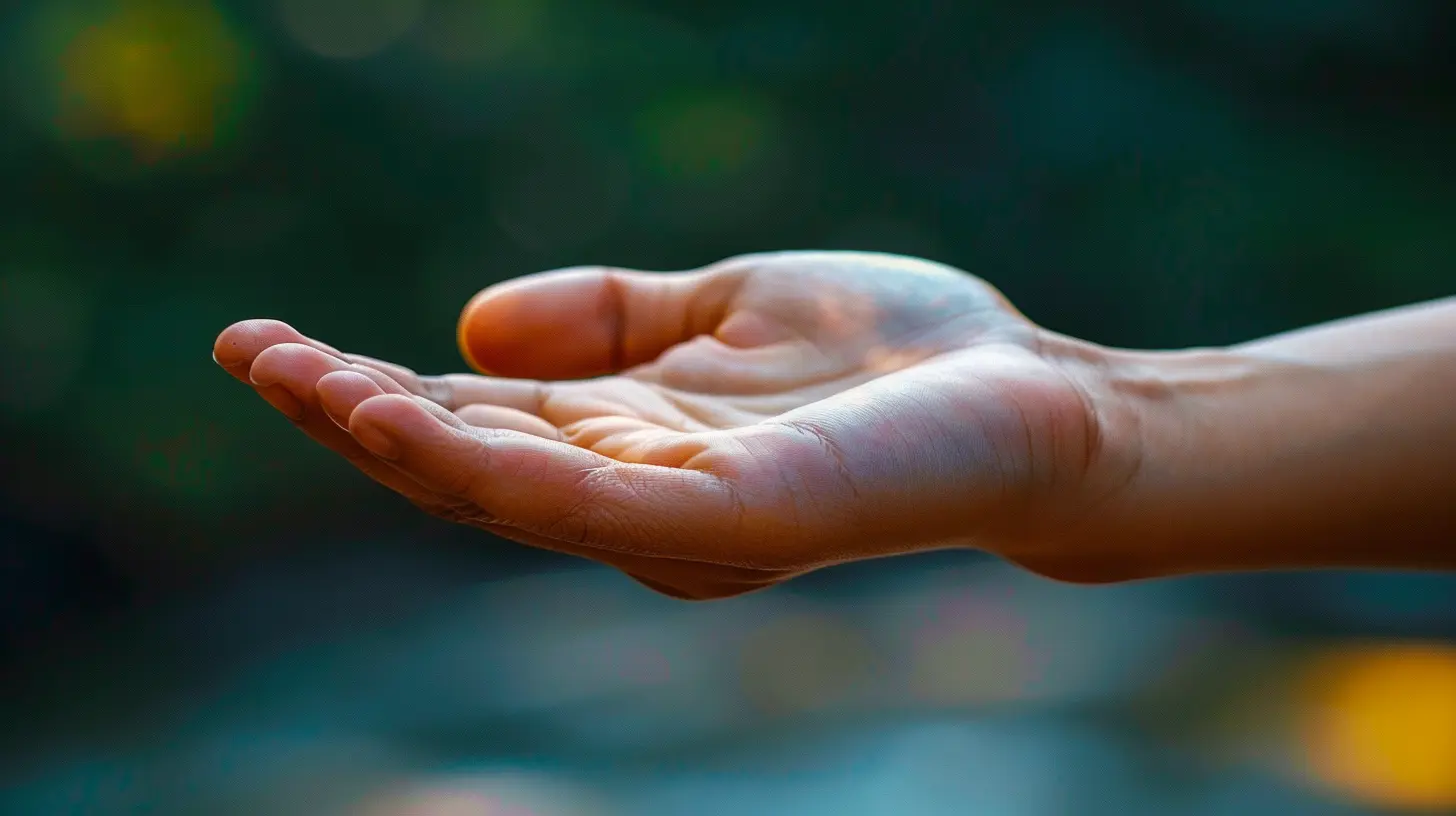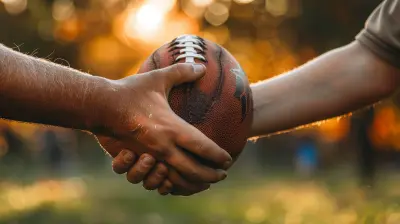The Role of Gratitude in High-Performance Sports
17 June 2025
When you think about what makes a top-tier athlete—speed, strength, mental toughness, discipline—you probably don’t jump straight to gratitude. But what if I told you that saying “thank you” might be just as important as bench pressing 300 pounds or shaving seconds off a sprint time?
Gratitude, often overlooked in the realm of competitive sports, is quietly building momentum as an essential tool in the world of high-performance athletes. It’s like the secret sauce—a humble ingredient that can dramatically enhance performance, recovery, mindset, and overall well-being.
So, let’s dive into why gratitude matters in sports, and how it could very well be the game-changer athletes never knew they needed.
What Is Gratitude, Really?
Sure, we say “thanks” all the time, but that’s just scratching the surface. Gratitude goes way beyond common courtesy. It’s a deep, emotional appreciation for the people, experiences, and even challenges that shape our journey.In simple terms: Gratitude is about recognizing the good in your life—and understanding that much of it comes from outside of yourself.

Why Gratitude Matters in High-Performance Sports
You may be wondering: "Okay, but what does gratitude have to do with crushing my PR or winning a championship?" A lot, actually.1. Gratitude Fuels a Positive Mindset
Athletes live in a pressure cooker. Expectations, injuries, wins, losses, social media—you name it. This pressure can quickly spiral into burnout or self-doubt.Gratitude flips the script. Instead of focusing on what’s missing—more wins, fewer injuries—grateful athletes focus on what they have: supportive coaches, strong bodies, another shot to improve.
This positive focus isn’t just fluff either. Research shows that cultivating gratitude leads to fewer negative emotions, more optimism, and a better overall mood—all of which are crucial for peak performance under pressure.
Think of gratitude as mental armor. It cushions athletes from the bruises and blows of a tough season.
2. Boosts Mental Resilience
Let’s face it—performance sports are brutal. There are slumps, losses, bad days, broken bones, and broken dreams. Not to mention the sacrifices: missed birthdays, relentless training, and the constant push beyond comfort zones.Here’s where gratitude shines. It helps athletes find meaning in the grind. Instead of seeing setbacks as punishment, they see them as stepping stones.
Being thankful—even for challenges—builds mental toughness. It’s like lifting weights for your brain. You get stronger each time you search for something to appreciate, even when things suck.
3. Enhances Focus and Flow
Ever notice how the best athletes seem to be "in the zone"? That magical headspace where everything clicks—time slows down, and they’re just…on another level?Gratitude helps get you there.
When you’re grateful, you’re not obsessing about past mistakes or future fears. You’re grounded. You’re present. That mental clarity enhances focus and flow, helping athletes stay locked in during high-stakes moments.
It’s like gratitude clears out the mental clutter so the spotlight can shine where it needs to—on performance.
How Gratitude Impacts Physical Health
This might surprise you, but the physical perks of gratitude are just as powerful.1. Improves Sleep and Recovery
Ask any serious athlete and they’ll tell you: recovery is everything.You can train like a beast, but if you’re not sleeping well or recovering properly, you’re headed straight for burnout or injury.
Gratitude has been linked to better sleep quality. People who practice gratitude often fall asleep faster, sleep longer, and wake up feeling more refreshed.
And better sleep? Better healing, more energy, sharper focus, and a body that bounces back faster.
2. Reduces Stress and Lowers Cortisol
In sports, stress is inevitable. But too much of it? That’s a performance killer.Here’s where gratitude steps in as a calming force. Studies show that consistent gratitude practice reduces levels of cortisol—the stress hormone that wreaks havoc on your body and mind.
Lower cortisol means less muscle breakdown, more stable energy, and greater immune function—all of which play a huge role in keeping athletes at the top of their game.
3. Keeps the Heart (and the Mind) Happy
Emotionally, gratitude boosts dopamine and serotonin—the same chemicals responsible for feelings of happiness and motivation.Physically, gratitude has been shown to improve heart rate variability (HRV), which is a major marker of athletic readiness and cardiovascular health.
So, in a weird way, saying “thanks” can actually help your heart beat stronger—literally and figuratively.
Famous Athletes Who Practice Gratitude
Still not convinced yet? Let’s talk about the pros who swear by gratitude:LeBron James
LeBron is a beast on the court, and he doesn’t just rely on physical training. He’s big on mental health, and gratitude is a key part of his daily routine. He often journals what he’s thankful for—family, health, the chance to compete.Serena Williams
Serena’s intensity on the court is legendary, but off the court? She regularly thanks her support system and credits gratitude for keeping her grounded and focused.Tom Brady
Love him or hate him, Brady is one of the most decorated quarterbacks in history. A big part of his winning formula? Daily gratitude practices that help him stay calm, clear, and driven.How to Build a Gratitude Practice as an Athlete
Alright, so you’re sold on the benefits—but how do you actually incorporate gratitude into your training? Relax, it doesn’t require candles, crystals, or chanting.1. Keep a Gratitude Journal
Simple but powerful. Each day, write down 3 things you’re grateful for. Maybe it’s that perfect pass you threw. Or the teammate who picked you up after a rough game. Or just the fact your body let you train today.Keep it consistent. It takes just five minutes but can completely rewire your mindset over time.
2. Practice Mindful Breathing
Take a few deep breaths, and with each inhale, think about something you’re thankful for. It could be your coach, your teammates, or even your sneakers. Sounds silly? Try it—it’s calming and energizing.3. Send a Thank You Note
Old school, but gold. Shoot a quick thank-you message to someone who’s impacted your athletic journey—a trainer, a parent, even a rival who pushed you to do better.Gratitude grows when it’s shared.
4. Reflect After Success and Failure
After games or training, take a minute to reflect—not just on what happened, but what you’re grateful for. Won? Be thankful for the effort and support. Lost? Be thankful for the lesson.Gratitude adds depth to both victory and defeat.
The Ripple Effect of Gratitude in Team Sports
Gratitude doesn’t just boost individual performance—it elevates the whole squad.Builds Stronger Team Bonds
Think about it—nobody wants to play with someone who’s all ego and no appreciation. Grateful athletes tend to be more empathetic, supportive, and team-oriented.That kind of energy is contagious. It lifts everyone and creates a team culture where people feel seen and valued.
Leads to Better Communication
Gratitude opens up the communication lines. When athletes routinely show appreciation for feedback, effort, or support, coaches and teammates feel more comfortable speaking up.And better communication? That leads to fewer mistakes, more synergy, and a team that just works.
Reduces Toxic Comparison
In elite sports, it’s easy to fall into comparison traps—”Why isn’t my name on that roster?” or “Why did they get the spotlight?”Gratitude helps athletes shift focus from what’s lacking to what’s abundant. It’s a mindset of abundance over scarcity, and it kills comparisons at the root.
Final Thoughts: Gratitude Is a Performance Tool
So, what have we learned?Gratitude isn’t some soft, feel-good gimmick. It’s a powerful tool—just like strength training or mental visualization. It boosts focus, builds resilience, improves well-being, and strengthens team dynamics.
For athletes who want to go the distance—not just physically, but mentally, emotionally, and spiritually—gratitude might be the edge they’re looking for.
In a world where winning is everything, maybe it’s time we start saying “thank you” a little more. Not because we’re satisfied, but because we understand that success doesn’t happen in isolation.
So next time you lace up, take a moment. Appreciate the grind, the people who helped you get here, and the body that still shows up.
Gratitude won’t make you superhuman—but it just might make you unshakable.
all images in this post were generated using AI tools
Category:
Sports PsychologyAuthor:

Preston Wilkins
Discussion
rate this article
2 comments
Darrow Butler
Ah yes, nothing says 'win the championship' like a heartfelt thank-you note to your coach after a thrilling game. Who knew gratitude was the secret playbook?!
June 20, 2025 at 4:47 AM

Preston Wilkins
Gratitude fosters strong relationships and teamwork, essential for achieving high performance. It’s not just about winning; it’s about the journey and support along the way.
Elora McConkey
Gratitude fuels champions; appreciation sharpens performance.
June 18, 2025 at 2:31 AM

Preston Wilkins
Thank you! Gratitude indeed enhances motivation and focus, driving athletes to excel in their performance.


